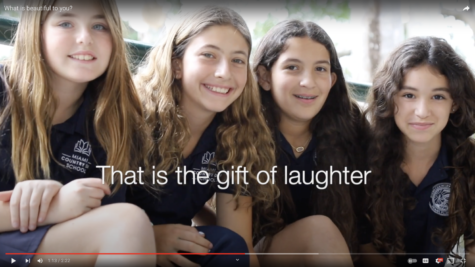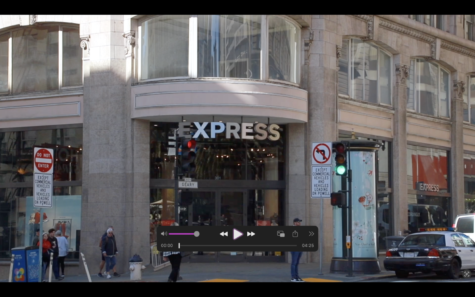The Trauma that Changed Mr. Valdes Forever
Twenty-five years ago, serial killer Jeffrey Dahmer was apprehended for the rape, murder, and dismemberment of several men and boys over a three-year period. Of those seventeen victims, three of them were students of our new Theatre for Social Change Director, David Valdes. Those boys were innocent victims of a ruthless, brutal murderer, and that fact would change his life forever.
Those circumstances and their relationship to Mr. Valdes were revealed to our community in the fine print on the back of the program for this year’s play “The Re-Programming of Jeremy.”
With a gravitas saved only for the most dire of circumstances, Mr. Valdes recalled in our sit-down interview “sitting on my bed, putting on my tennis shoes, getting ready to go play some basketball… the news came on and everything was like.. the world just stopped. It was unreal. It was unbelievable.”
Ernest Miller, Anthony Sears, and Curtis Straughter were friends who bonded over their passion for acting and dancing in theatre. As Mr. Valdes remembers, the students often stood outside the school and talked about going to gay bars, where many older men preyed on kids who looking for some kind of male figure in their life. “None of these boys had a second parent in their lives,” says Mr. Valdes, recalling that each had only a working mother who was not home a lot. Time and again, Mr. Valdes would feel the need to “step into the role of the parent, and the father, in fact, just to say “hey guys, you have to be careful.”
Not wanting Mr. Valdes to worry, the boys made light of their encounters. In reality, the real danger was around the corner. “It turns out,” Mr. Valdes explains, “Jeffrey Dahmer was coming to a cafe that was like a block away from the school, and the kids would meet there in the morning to go for coffee.” After their deaths, he found out from some other students that Dahmer had befriended them by telling them “how beautiful they were, how he was going to them modeling jobs, how he was a talent agent and he was going to take them to Chicago, but he needed them to believe in him and to trust him.” Mr. Valdes never knew that the kids had been going over to Dahmer’s house, until breaking news later revealed it. “I didn’t know about any of this, until, you know..it happened.”
Mr. Valdes had successfully blocked out the incident from his life for 15 years following their funerals, until the day he was exposed to a play that would make him open up. “The script [The Re-Programming of Jeremy] reminded me of these kids,” recalled Mr. Valdes. He knew he would wanted to see it performed and to “see if there’s something that I can continue to do as an educator, as an artist, to say this can’t happen…we need to talk about it.”
Over the next few years, Valdes directed this play numerous times at St. Paul’s School in New Hampshire, where he was teaching.
Upper School Guidance Counselor, Ms. Kelly Pierce, explains, “when someone has experienced trauma, it’s important for them, when they feel ready, to address it with some support of counseling so that they can process through it.”
By choosing The Re-Programming Of Jeremy as his first Theatre for Social Change play, Mr. Valdes wanted to convey to the community at MCDS that this is still happening all around us. “Talk to somebody, have friends, be able to feel good about yourself,” advises Mr. Valdes. “Don’t feel like you have to hide and find out who you are in secretive ways because that’s where the danger comes in.” But it also helped him grapple with the loss of his students and to make a statement about acceptance and tolerance in our society today.
According to The National Child Traumatic Stress Network, more often than not, people who have experienced a traumatic event in their life exhibit symptoms of post-traumatic stress disorder (PTSD). PTSD is a disorder that triggers anxiety and flashbacks from a traumatic event. Having worked with people who experienced trauma, Ms. Pierce understands that a profoundly traumatic experience, such as Mr. Valdes’, can “last a lifetime.”
“There were times at rehearsal that I would be talking with the actors and it was hard not to feel the tears welling up in my eyes,” confesses Mr. Valdes, “This was an awful situation, we can’t let it come to this again.”
Playing the role of Abigail, Jeremy’s best female friend, Amaris Rios felt it was important for students to learn about issues that we don’t discuss enough in school. “The topics that are being covered in the play are not past issues, they’re now issues,” Amaris explains, “I think it’s important for teenagers to learn about these things now and to learn to be open minded.”
“We don’t always get an opportunity to know how other people are feeling,” adds Ms. Pierce, “it’s important, especially in this school and with this age, to try to encourage empathy and compassion for others, instead of just judging them for how they’re acting or what they’re saying, and understanding that it’s all meaningful and they may be hurting inside.”
Besides what Ms. Pierce can offer, MCDS’s Gay-Straight Alliance Club (GSA) and the Anti-Bullying Club (ABC) offer students a forum to support one another, regardless of their sexual orientation. “You might not be the person that is affected, you might not be a member of the LGBT community, you might not be a victim of bullying or be a bully, but that doesn’t mean that there aren’t things that are happening around you that you can’t have a positive impact on,” said Amy Gallup, who advises both clubs.
As for Mr. Valdes, feeling the need to make a difference around him, the play has guided him to become a more aware and open-hearted person. “You don’t know what everybody’s problems are, you don’t know what they’re going through, you don’t know if they’re living a secret. So you have to be kind, because there are some really tough things happening for some kids and maybe the person sitting next to you has tried to commit suicide or has thought about it. They don’t need another enemy, they need a friend who they can trust and love. So that’s what Jeremy did for me. It was my way of reaching out to this community.”






